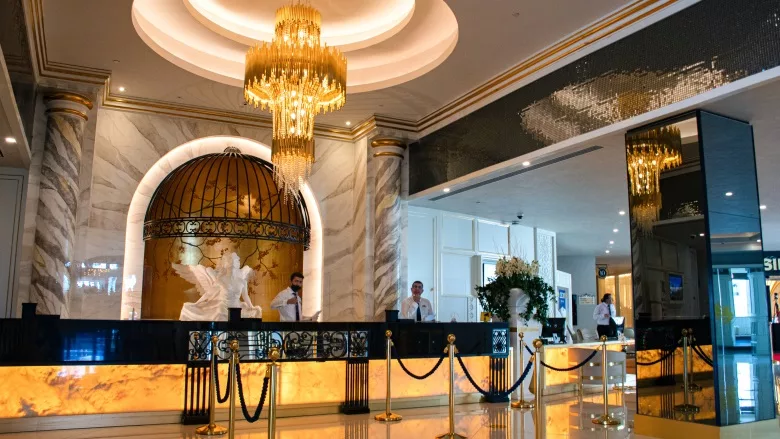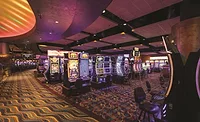5 strategies for hotel & casino worker safety

Image via Unsplash
According to Abraham Maslow’s theory on the hierarchy of human needs, safety is the second most important, after the physiological need for food, water, shelter and sleep. Since the dawn of mankind, safety has been sought and obtained by any means necessary, and things are no different today. As humans, we long to feel safe and secure in every environment, from our homes, to our places of employment, to the public spaces we occupy while just being out and about.
But the sad reality is that we live in an imperfect world. Bad things are happening every moment of every day, and sometimes the weight of that can instill a feeling of existential dread as we question, “Am I ever really safe?” And for workers in certain high-risk industries, specifically for those who work in hospitality, they face this question constantly.
To paint a more accurate picture of what’s happening in the hospitality industry in regards to safety, according to a 2016 survey conducted by Unite Here, 58% of hotel workers have experienced sexual harassment or assault. And for those who work in casinos, that number is even higher at 77%.
Housekeeping staff often find themselves in situations where they may be tending to a room on a low occupancy floor of a hotel, and on a slow day, they may be completely isolated from fellow staff or management. In these situations, the doors to the rooms are left propped open, with nothing but a cleaning cart blocking them from anyone who might be wandering the corridors. This puts housekeeping and other hospitality staff in a very vulnerable position, which can create unsafe situations.
It’s worth mentioning the other risk factors that hospitality workers face every day that hinder their sense of safety and security. Fires, active shooters, medical emergencies, gas leaks and a number of other hazardous scenarios also present risks to hotel employees.
So what can security leaders do to make sure these employees feel safe at work? Fiona Moloney, CEO of HaloSOS, and Rebecca Donovan, Life Safety Director, share their top five suggestions for keeping hospitality staff safe:
- Listen to employee safety concerns. Encourage employees to follow their intuition, as it can help guide them when it comes to raising an alert in an emergency. Timing is vital, and the difference between acting or hesitating can often mean the difference between the successful prevention of an unfolding incident and an unfortunate outcome.
- Keep employees up to date on their rights and responsibilities. There are laws in place to protect people at work. In a well-run hotel that has guest experience as a top priority, all staff have to be on board with the hotel's mission, because a well-informed team feels supported and safe, and knows they are cared for.
- Have a safety plan. Introduce a safety training schedule and practice it regularly. When an emergency occurs, it’s important that the team responds calmly with muscle memory, and that everyone has a series of protocols they can follow. Having a well-executed protocol can also assure that everyone will be accounted for during and after an event has occurred.
- Leverage panic technology. Panic alarms or buttons can help hotel employees alert security to an incident in real time. Wearable watch-like devices act as a voice-activated panic-button. Employees can wear the device during their shift, and in the case of an emergency, can be located instantly and accurately. This makes it so that security and management teams are able to precisely locate their entire staff in the case of either personal or mass crisis situations.
- Encourage employees to report incidents. Some team members may feel uncertain about how to go about reporting an incident. Perhaps they feel it’s not reportable as it may only be something they have witnessed, or they may feel their job will be put at risk if they say something. It goes without saying that prevention of a future serious incident can be dependent on management’s awareness of past incidents, so that necessary steps can be taken to prevent them from happening again in the future.
New workplace safety legislation is mandating that hotels with 25 rooms or more must provide employees who work alone with personal safety devices that they can use to quickly call for help in the case of an emergency. These new laws move the issue of employee safety to the forefront of many safety officers’ to-do lists as they work to implement solutions to this long-standing and ongoing problem.
No one should have to face unsafe situations in their workplace, especially those most vulnerable to sexual misconduct. Security leaders can employ the above tips to help prevent workplace harassment and violence in their hospitality organizations.
This article originally ran in Security, a twice-monthly security-focused eNewsletter for security end users, brought to you by Security magazine. Subscribe here.
Looking for a reprint of this article?
From high-res PDFs to custom plaques, order your copy today!






